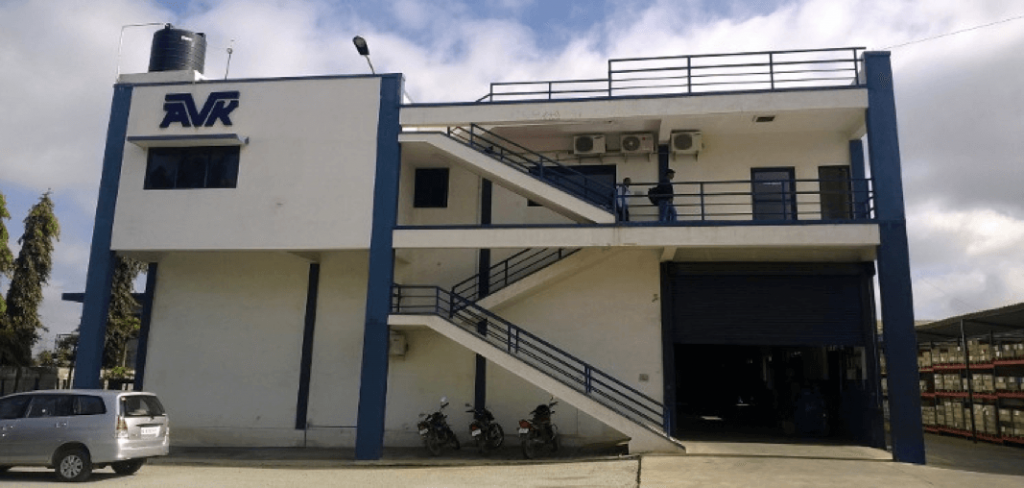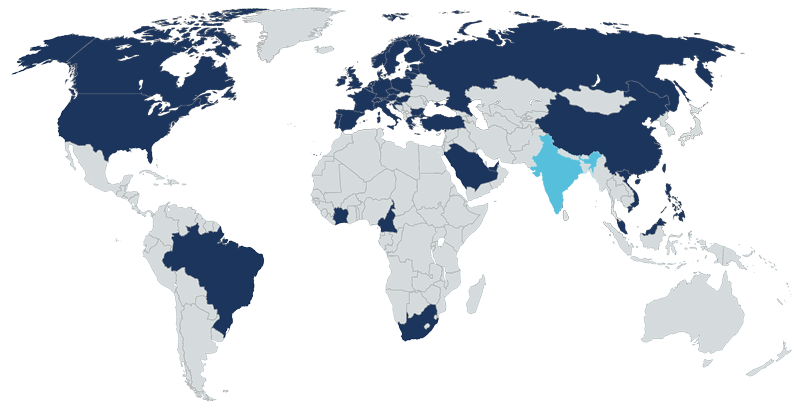
13 Jun Challenges faced during global rollout of ERP system to India
I’m sure that anyone who carried out a global rollout of ERP system Microsoft Dynamics NAV (Navision) in India will agree that running an implementation project in this part of the world is a formidable task. There are several reasons why.
Local legal regulations in India are considered the toughest in the world
Finance and accounting – complex local legal requirements
The local version of ERP Dynamics NAV for India includes a very complex accounting module used for tax management (also excise duties). Local features for both Microsoft Dynamics NAV 5.0 that we implemented in India as well as for 2013 version are delivered directly by Microsoft . As the leading Microsoft Dynamics NAV partner, we prepared the local (Polish) functionality for 2013 version which is very complex, taking into account the European requirements. Still, when we compare these two, Dynamics NAV in India is much more elaborate.
One of the reasons of the complexity of the local functionality is differences in taxes imposed by various states in India. The same thing is happening in Brazil where taxing differences are even more distinct. India is much more unified in this respect.
Manufacturing – low labour costs
Another source of difficulty encountered during rollout in India, at least in the subsidiary in which I implemented ERP Microsoft Dynamics NAV, was relatively low labor costs which accounted for a small percent of the total production cost. It was difficult to calculate some of the indicators, e.g. how much work is done per machine in one minute.
The additional difficulty was that in a small production facility one man usually worked on several machines at the same time. That’s why, we decided to adopt a simplified model. We implemented the allocation of labor costs for work centers for which the assembly was done. We gave up calculating these costs for all work centers as it was not needed.
Level of knowledge of the local management
The company in India for which we carried out the implementation project is a subsidiary of the Danish company – AVK Group. The decision was made that during the deployment of the manufacturing module in India I (as IT.integro consultant) will be accompanied by Business Owner from the headquarters. The objective was to define settings or even impose production and planning processes. For that reason, the implementation was not preceded by the analysis of the requirements but the assessment of the situation. It was necessary to educate the local production users and acquaint them with some fundamental, from the European perspective, issues such as MRP and how to use it. On the other hand, the Indian employees were very open minded and eager to learn. Working in a company like AVK was seen as a great opportunity not only for financial or social reasons. A positive attitude to ERP system, which was a novelty for them, was of paramount importance not only for the success of trainings but for the entire project.
On the other hand, in case of global rollout of ERP Dynamics NAV for AVK, we always draw upon knowledge of the subsidiary employees when we talk about local implementations. Companies of this kind (Starco or DLF-Trifolium) for which we run similar projects, employ specialists in subsidiaries whose job is to streamle the processes. As Dynamics NAV partner, we always rely on their knowledge during rollout.
Global Template as a platform for harmonization of work in subsidiaries
The problems discussed above probably stem from the fact that the AVK subsidiary in India was created basically from scratch. Maybe more time must pass before people working there could demonstrate expert knowledge. However, it points to a very interesting aspect of global rollout of ERP system Dynamics NAV. Organizations such as AVK Grouop develop some global processes which become part of the Global Template implemented in subsidiaries. Subsidiaries are different. Some of them have been part of the AVK Group for years so their processes resemble the ones adopted in the group. However, some of them have been recently purchased or founded so their processes differ from the group standards. In such cases, global template based on ERP system (Microsoft Dynamics NAV) is a great tool used to impose group standards on subsidiaries. The implementation project in AVK India that I‘ve recently carried out is a perfect example of using theGlobal Template for that purpose.
Cultural differences – impact of the caste system
There is one more local factor that hinders the project delivery and cannot be ignored here. It is the cultural differences or, to be more precise, the impact of the caste system on the project execution. People from upper castes usually occupy higher business positions, regardless of their actual competences or their commitment to the job. The caste system has also negative effects on the information flow in a company. In case of ERP implementation projects, all these social issues matter and must be taken into account. In practise, more involvement on the part of the implementation partner may be needed compared to projects run in other countries. However, in my opinion, even if we bear in mind complex legal requirements, it is still the cultural differences that are the toughest stumbling block to the project.
To find out more about Microsoft Dynamics NAV implementation project in India that we carried out in 2012 and 2013, visit our website.
Global rollout of ERP system in India
In the third quarter of 2013 IT.integro launched the manufacturing module in AVK subsidiary in India. It was the second phase of the ERP Microsoft Dynamics NAV (former Navision) implementation project in this location. In the first stage carried out in 2012 we deployed finance and accounting as well as sales and logistics modules. At that time, the subsidiary in India operated only as a trading company.

Roll-out of consolidated Microsoft Dynamics NAV to AVK subsidiary in India
Project background – specific nature of Indian market
Expansion of company activities resulted from unique characteristics of the local market. India has very high import duties. AVK headquarters decided to start manufacturing in India to limit the influence of import duties on the prices of products sold by the subsidiary. There was also a local problem with sharp fluctuations in the Indian rupee rates which, in case of a trading company importing and selling goods, often led to significant margin reductions. Thus, it was the policy of the Indian government that influenced the decision-making of AVK Group headquarters.
Expanding production and logistic operations in AVK subsidiary in India
For these reasons, AVK subsidiary in India has recently expanded its warehouse and manufacturing operations by purchasing e.g. new machines. The company has also a specialized quality control system used for testing valves – one of the main products of AVK Group. Valves are produced in India based on designs created in the subsidiary. After implementing the abovementioned changes, the subsidiary in India decided to deploy the manufacturing module for ERP Dynamics NAV as the company plans to build a new factory in India in the future.
Manufacturing functionality for ERP Microsoft Dynamics NAV
Global ERP system that has been implemented for AVK, based on Microsoft Dynamics NAV, includes production order functionality. In India it was implemented along with serial number tracking system which is used for printing labels with barcodes. The new features offer tremendous opportunities for the Indian subsidiary.
Inventory reduction with MPR settings
As one of the project objectives was to reduce the inventory, apart from manufacturing functionality, the supply chain management system has been implemented. With the appropriate settings of MRP (Material Requirements Planning in Microsoft Dynamics NAV) it was possible to control the stock levels. Global and consolidated ERP system implemented for AVK by IT.integro includes the module that suggests planning parameters. Standard MRP functionality in ERP Microsoft Dynamics NAV requires manual setup. However, the module that we deliver as part of Global Template for AVK provides the procedure for generating basic setup. Detailed inventory settings are defined based on forecasts. The script that is generated in this way contains suggestions that are analyzed, approved and set up by the user. Warehouse implementation works involved identification of excess inventory as well as defining planning parameters that would allow for inventory reduction in the future.






